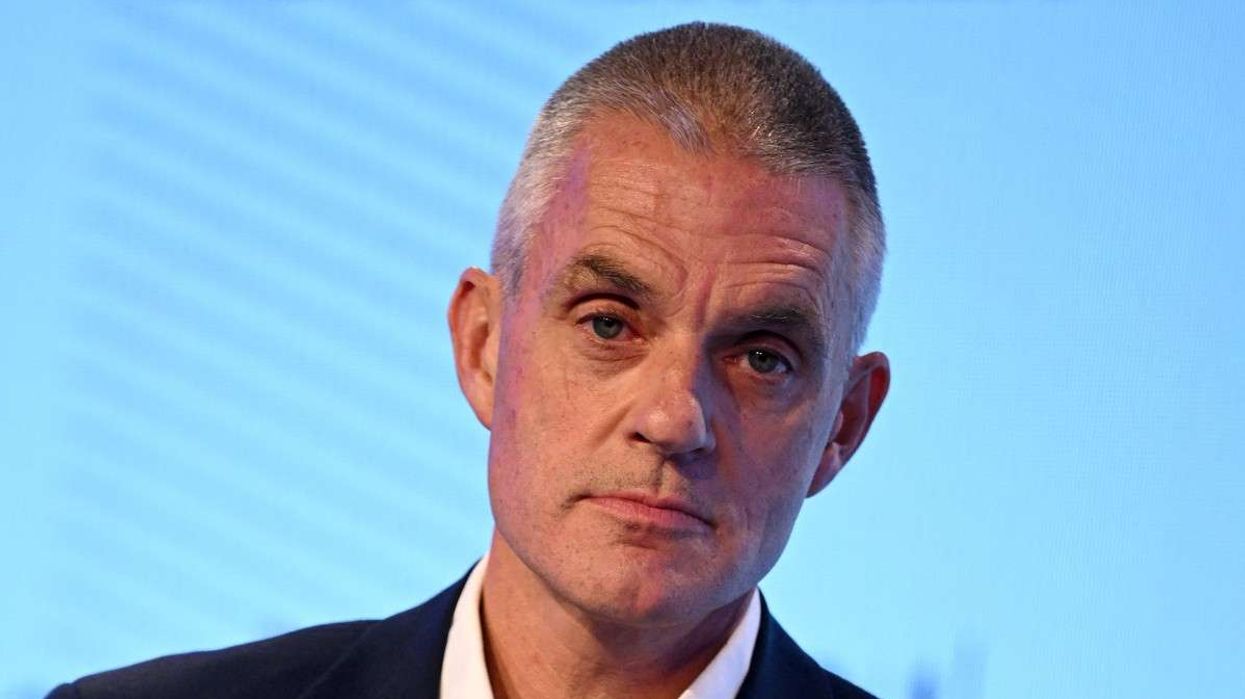Highlights:
- BBC Director General Tim Davie and Head of News Deborah Turness resign after the controversy
- Trump calls BBC journalists “corrupt” and accuses them of trying to influence the election
- Culture Secretary Lisa Nandy calls the allegations “incredibly serious”
- BBC to give full response to the Culture, Media and Sport Committee
BBC DIRECTOR General Tim Davie resigned Sunday after a row over the editing of a Panorama documentary about Donald Trump, as the former US president attacked “corrupt journalists”.
Davie and the BBC’s Head of News, Deborah Turness, stepped down following accusations that the programme edited a Trump speech in a misleading way.
Reacting to the resignations, Trump said “corrupt journalists” had been exposed, adding, “these are very dishonest people who tried to step on the scales of a Presidential Election”.
Announcing his resignation, Davie said in a statement on the BBC website: “Like all public organisations, the BBC is not perfect, and we must always be open, transparent and accountable.
“While not being the only reason, the current debate around BBC News has understandably contributed to my decision... I have to take ultimate responsibility.”
The Daily Telegraph reported this week that concerns were first raised in the summer in a memo on impartiality by Michael Prescott, a former external adviser to the BBC's editorial standards committee.
Earlier Sunday, Culture, Media and Sport Minister Lisa Nandy called the allegations “incredibly serious”.
The BBC has said it will give “a full response” to Parliament's Culture, Media and Sport Committee on Monday.
Trump speech edit
The criticism focused on clips spliced together from a Trump speech on 6 January 2021, when he was accused of encouraging the mob attack on the US Capitol as he sought to stay in office after losing the election.
The edit made it appear he had told supporters he was going to walk to the US Capitol with them and “fight like hell”.
In the undoctored clip, the president urged the crowd to walk with him “and we're going to cheer on our brave senators and congressmen and women”.
At the time, Trump was still disputing President Joe Biden's election victory after his first term.
The edited clip was part of a BBC documentary titled Trump: A Second Chance? which aired the week before last year's US election.
‘Bias’ allegation
Nandy said the edit was one of several concerns about editorial standards at the BBC.
“It isn't just about the Panorama programme, although that is incredibly serious,” she said in a BBC television interview Sunday.
“There are a series of very serious allegations made, the most serious of which is that there is systemic bias in the way that difficult issues are reported at the BBC,” she said.
Nandy said she was concerned about a tendency for editorial standards and language to be “entirely inconsistent”, whether it be on “Israel, Gaza... trans people or on this issue about President Trump”.
White House Press Secretary Karoline Leavitt posted on X a screenshot of the BBC news site announcing the resignation. She was earlier quoted by The Telegraph criticising “this purposefully dishonestly, selectively edited clip by the BBC”.
Culture Secretary statement
Culture Secretary Lisa Nandy said: “I want to thank Tim Davie for his service to public service broadcasting over many years. He has led the BBC through a period of significant change and helped the organisation to grip the challenges it has faced in recent years.
“The BBC is one of our most important national institutions. Every day, it tells the story of who we are – the people, places and communities that make up life across the UK. Now more than ever, the need for trusted news and high-quality programming is essential to our democratic and cultural life, and our place in the world.
“As a government, we will support the Board as it manages this transition and we will ensure that the Charter Review is the catalyst that helps the BBC to adapt to this new era and secures its role at the heart of national life for decades to come.”
The BBC is funded by a licence fee paid by anyone who watches live TV in the UK.
Earlier this year, the broadcaster apologised for “serious flaws” in another documentary, Gaza: How To Survive A Warzone, aired in February.
In October, it accepted a sanction from the UK media watchdog for a programme deemed “materially misleading”, in which the child narrator was later identified as the son of Hamas's former deputy agriculture minister.
(With inputs from agencies)





